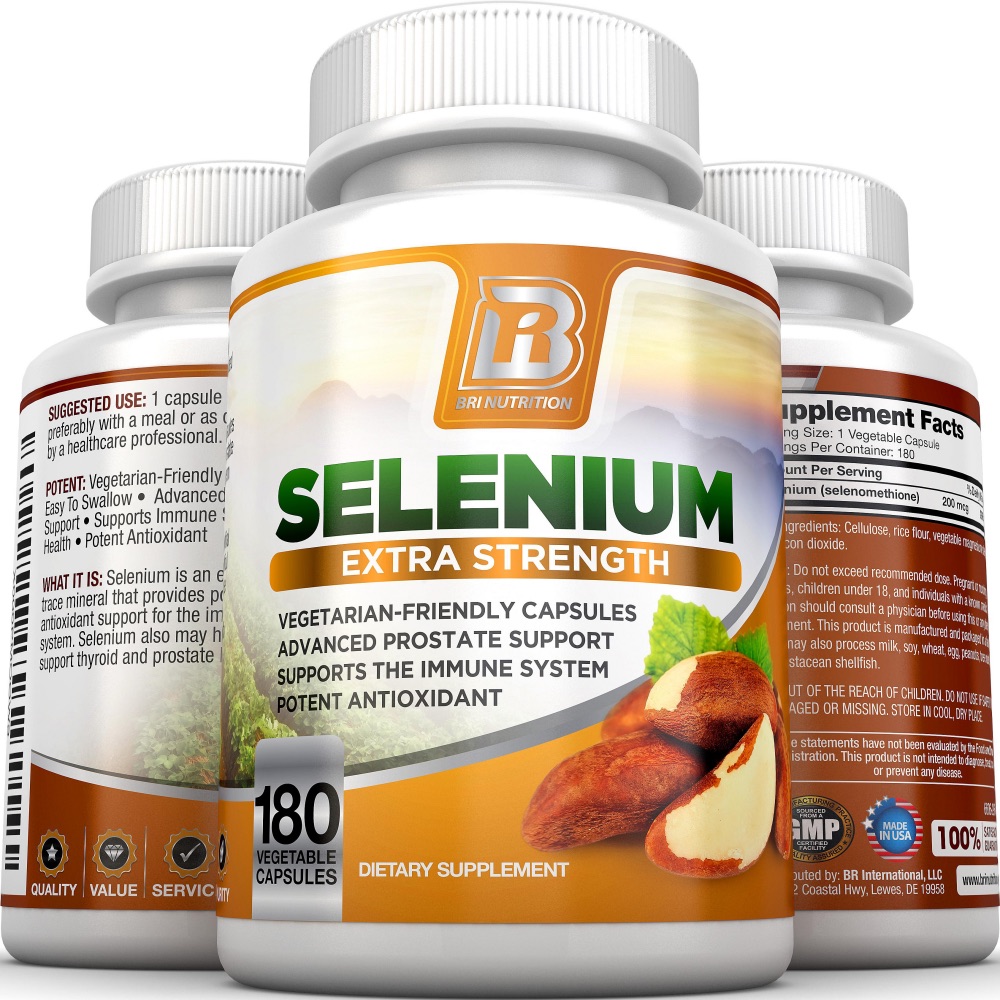Selenium is a trace mineral that, although required in small amounts, plays a crucial role in maintaining overall health. It is renowned for its powerful antioxidant properties, which help protect the body from oxidative stress and support immune function, thyroid health, and cardiovascular health. Selenium also works in synergy with other nutrients to maintain optimal body functions. In this article, we will explore the benefits of selenium, its role as an antioxidant, and the best ways to incorporate it into your diet for optimal health.
The Role of Selenium in the Body
Selenium is an essential mineral that contributes to various critical bodily processes. It is most recognized for its role in the production of antioxidant enzymes, particularly glutathione peroxidase, which helps neutralize harmful free radicals. These free radicals, if left unchecked, can damage cells, leading to inflammation, premature aging, and chronic diseases such as cancer and heart disease.
Apart from its antioxidant functions, selenium is also involved in DNA synthesis, thyroid hormone metabolism, and the immune system. A deficiency in selenium can impair these systems, leading to various health issues, including compromised immunity, poor cognitive function, and increased risk of illness.
The Antioxidant Power of Selenium
Neutralizing Free Radicals
One of selenium’s most critical functions is its role in protecting cells from oxidative damage. As part of the enzyme glutathione peroxidase, selenium helps to eliminate free radicals, which are unstable molecules produced during normal metabolic processes or due to environmental factors like pollution, smoking, and UV radiation. By neutralizing these free radicals, selenium helps reduce oxidative stress, which can otherwise contribute to cell damage and the development of chronic diseases.
Research published in The Lancet highlights the importance of selenium in reducing oxidative stress and lowering the risk of chronic conditions, including heart disease and certain types of cancer. Its antioxidant properties make it a valuable mineral for supporting long-term health.
Supporting Immune Function
Selenium also plays a key role in bolstering the immune system. It helps regulate inflammation by modulating the activity of immune cells, ensuring that the immune response is strong enough to combat pathogens without causing excessive inflammation. Studies have shown that individuals with adequate selenium levels have a more robust immune response, especially when fighting off infections like influenza and other viral diseases.
According to research published in the American Journal of Clinical Nutrition, selenium supplementation has been found to enhance immune cell function, particularly in older adults, making it a crucial element in supporting healthy aging and immune resilience.
Selenium and Thyroid Health
The thyroid gland contains more selenium per gram of tissue than any other organ in the body. This mineral plays a critical role in thyroid hormone production and metabolism. Selenium is necessary for the conversion of the inactive thyroid hormone (T4) into its active form (T3), which regulates metabolism and energy production throughout the body.
A deficiency in selenium can lead to thyroid dysfunction, contributing to conditions such as hypothyroidism, Hashimoto’s thyroiditis, and even goiter. Studies published in Thyroid have shown that individuals with adequate selenium levels have a lower risk of developing thyroid disorders, highlighting the importance of selenium for maintaining a healthy thyroid.
Cardiovascular Benefits of Selenium
Selenium’s antioxidant properties extend to protecting the cardiovascular system. Oxidative stress and inflammation are key contributors to heart disease, and selenium helps counteract these effects by reducing oxidative damage to blood vessels and lowering inflammation. Research has shown that low selenium levels are associated with an increased risk of cardiovascular disease, while sufficient intake can help reduce the risk of heart attacks and strokes.
A study published in Cardiovascular Research found that selenium supplementation reduced markers of inflammation and oxidative stress in patients with cardiovascular conditions. This suggests that selenium may play a protective role in heart health by improving the body’s ability to handle oxidative stress.

Food Sources of Selenium
Selenium-Rich Foods
Selenium can be obtained from a variety of dietary sources. The amount of selenium in food is largely dependent on the selenium content of the soil in which it is grown, meaning some regions of the world may have selenium-rich foods, while others may not.
Some of the best dietary sources of selenium include:
- Brazil nuts (an exceptionally high source of selenium)
- Seafood (such as tuna, sardines, and shrimp)
- Meat (beef, chicken, turkey)
- Eggs
- Whole grains (such as brown rice and barley)
- Mushrooms
Including a range of these foods in your diet can help ensure adequate selenium intake and provide its antioxidant benefits.

Selenium Supplements
For individuals who may not get enough selenium from their diet, supplementation can be a viable option. Selenium is available in various forms, including selenomethionine and selenium yeast, both of which are highly bioavailable. However, it is important to note that excessive selenium intake can lead to toxicity, which can cause symptoms such as nausea, hair loss, and fatigue.
The recommended daily intake of selenium for most adults is about 55 micrograms, and it is advisable to consult with a healthcare provider before beginning any supplementation, particularly for those with pre-existing health conditions or those taking medications.
In Conclusion
Selenium is a powerful trace mineral with profound antioxidant properties that support overall health. Its ability to neutralize free radicals, boost immune function, and protect the cardiovascular and thyroid systems make it an essential part of a balanced diet. By incorporating selenium-rich foods into your daily routine or considering supplements when necessary, you can harness the benefits of this essential mineral and support your body’s defense against oxidative stress and chronic disease. Understanding the importance of selenium and maintaining adequate levels is a key step toward long-term health and vitality.







